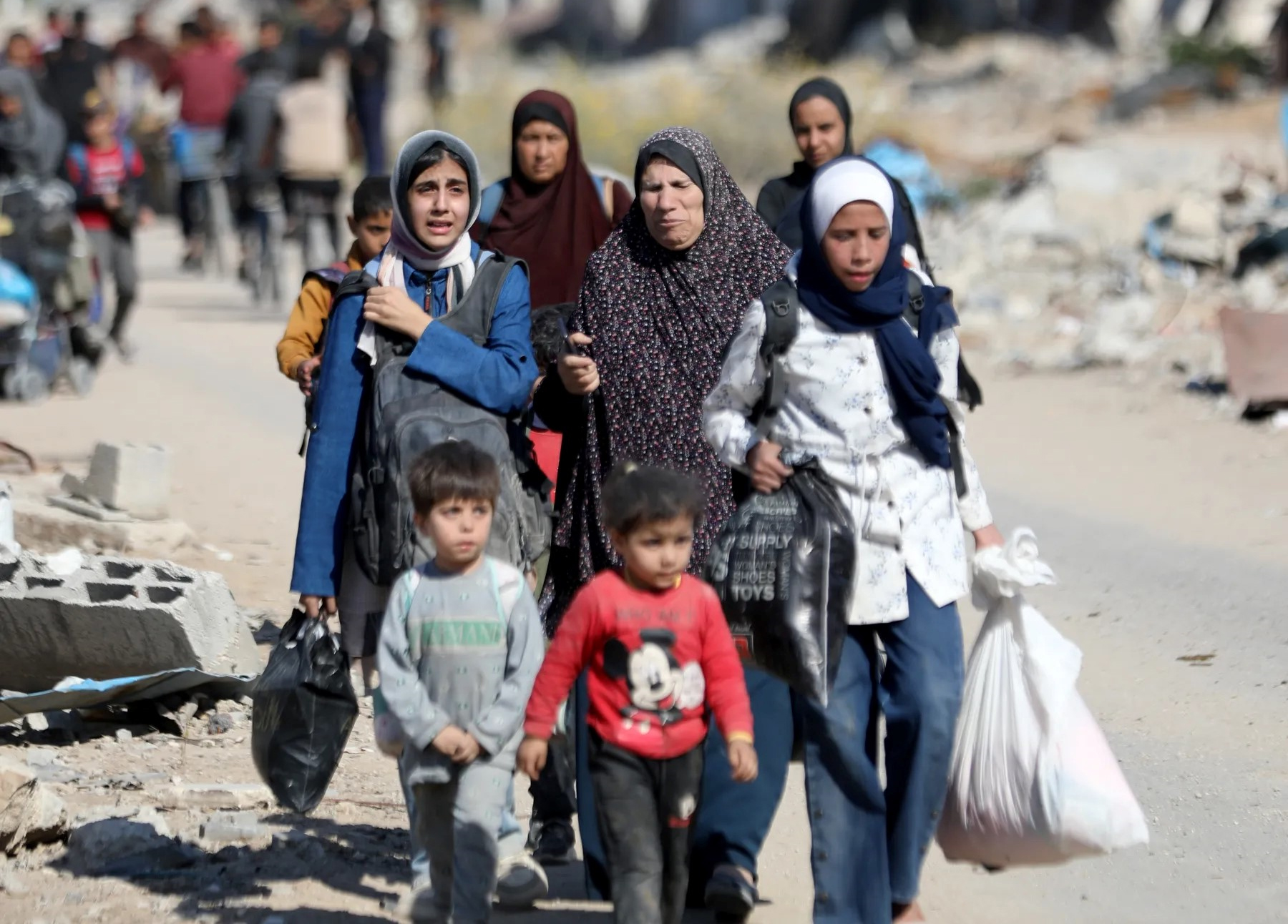
Israeli forces have worked especially for the very short time in the north of the Gaza Strip, where the hardest attacks of the last year have been repeated, with hundreds of deaths, mostly civilians and dozens of children among them. Once again, the people have issued an order to go south of Gaza to the “humanitarian zone” that has been formed there. Everything indicates, however, that Israel wants to empty the north of the line and that the ethnic cleansing of its inhabitants will be intensified.

In a press appearance on Tuesday night, Israeli Army General Itzi Cohen acknowledged for the first time that Palestinians who are now leaving public are not going to be returned to their lands and homes. So far, the Palestinians have been expelled on more than one occasion from northern Gaza, but these Palestinians tend to return, not least because they have no safe place in all of Gaza.
Cohen acknowledged that the Israeli forces have entered the area of Jabalia twice, and that they have then been attacked again there, and elsewhere. The army has been attacking Gaza for a year and has not managed to bring it to an end with Hamas, which has already announced its victory. That is why the current expulsion operation has intensified and the next step is the entry into force of the doctrine of the Generals.
This doctrine is a plan designed by a group of military authorities led by the general of the reserve, Giora Eilan, according to which citizens will be ordered to leave it and those who do not leave will be considered as members of HAMAS or terrorists and, consequently, as military objectives.
General Eilan’s plan, however, is nothing new and is fundamentally based on the Dahiya doctrine. Dahiya is a neighbourhood in southern Beirut, destroyed by the Israeli Army when it attacked Lebanon in 2006, claiming that there was the headquarters of Hezbollah. Israeli General Gadi Eizenkot spoke of this doctrine for the first time in 2008 in an interview given to the daily Yedioth Ahronoth and announced to anyone who attacked Israel: “We will use excessive force and cause tremendous damage. For us, these are not urban spaces where civilians live, but military objectives”.
Israeli forces are therefore conducting strong attacks in northern Gaza to send their inhabitants to the south of the Netzarim corridor. The Army opened this corridor shortly after the outbreak of war to divide the territory of Gaza into two.
Great debate in Israel
After a year of war, there is a great debate in the Israeli elite about what to do in Gaza, both in the war and especially after the war. According to some analysts, basically many leaders of the Israeli Army want it to leave Gaza and establish a Palestinian government controlled by Israel and not led by Hamas. The attitude of the United States Government so far would also be very close to that position. However, the extreme right, which is widely represented in the Israeli Government, believes that the whole of Gaza must be recolonized. Proof of these tensions can be the impeachment this week by Benjamin Netanyahu of his Defence Minister, Yoav Gallant.
It is not clear what the future will be, but it is becoming increasingly clear, as the Israeli newspaper Haaretz has denounced, that they want to evacuate northern Gaza. The UN estimates that there are still between 300,000-400,000 citizens in northern Gaza. According to sources close to the issue, it is said that it will still take time until the operation is over, perhaps one month, two or three months.
In any case, although all of Gaza is destroyed, the great destruction of northern Gaza is particularly underlined by all attendees. The report, released last Monday after the UN Conference on Trade and Development, indicated that the Gaza economy will need decades to return to its delicate pre-war situation.
Across northern #Gaza, there is no way of telling where the destruction starts or ends.
— Louise Wateridge (@UNWateridge) November 6, 2024
No matter from what direction you enter #Gaza City, homes, hospitals, schools, health clinics, mosques, apartments, restaurants - all completely flattened.
An entire society now a graveyard. pic.twitter.com/gnZk0URyQX
This report by the Israeli-Palestinian Agerkari +972 speaks extensively of the doctrine of the Generals. The reader will see that the authors already know what they are talking about and that in Israeli society very broad sectors would accept such a path.